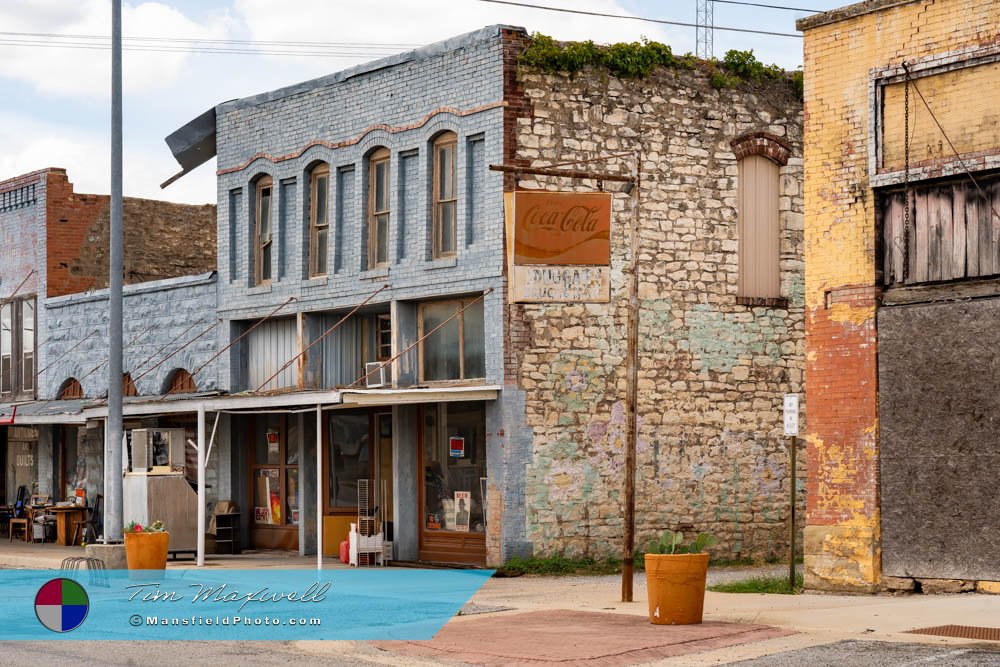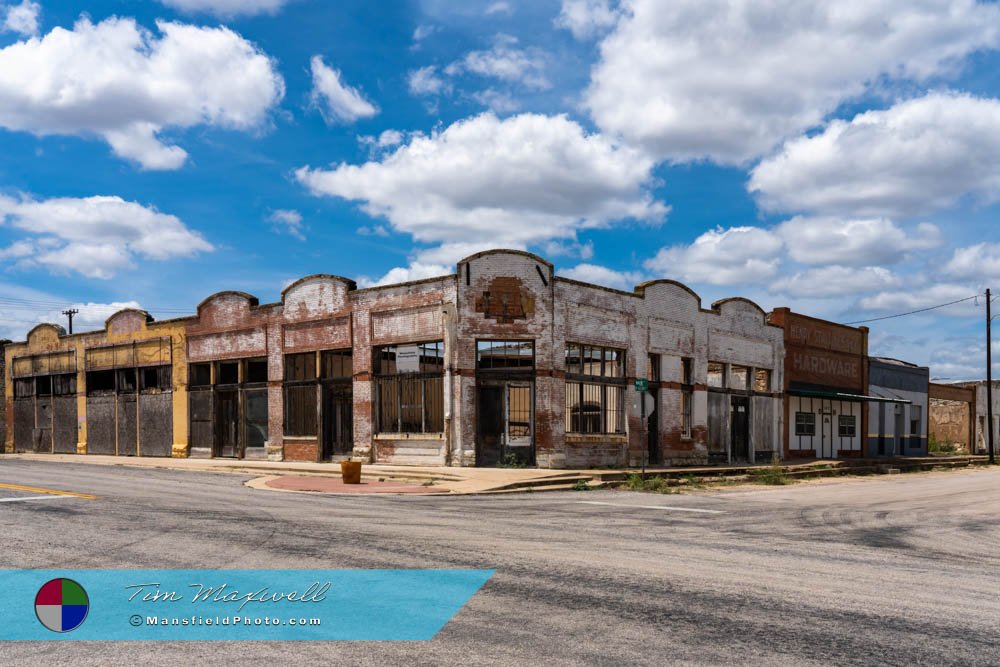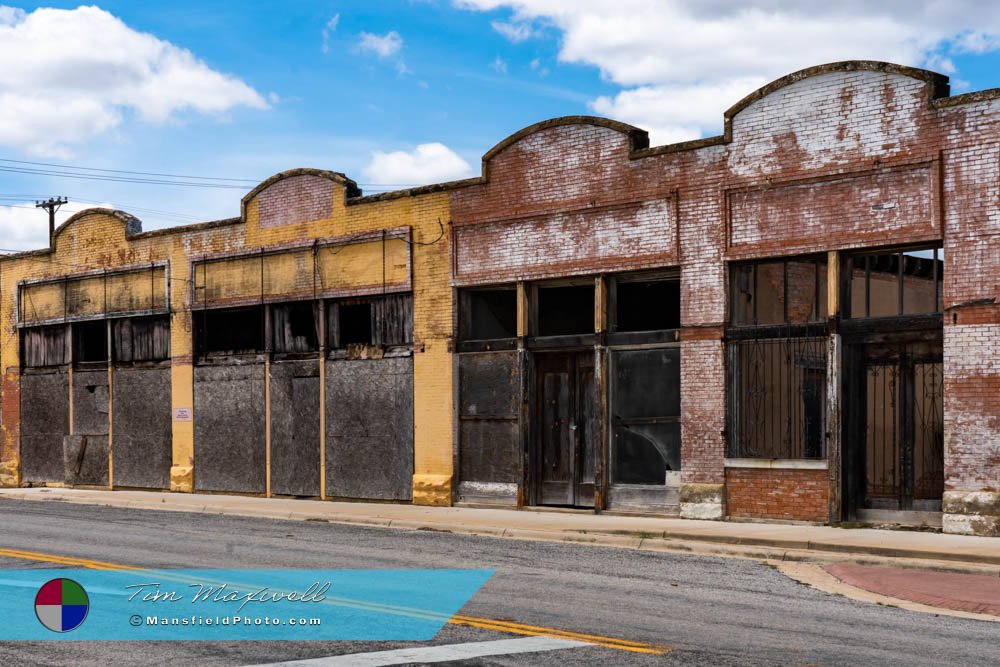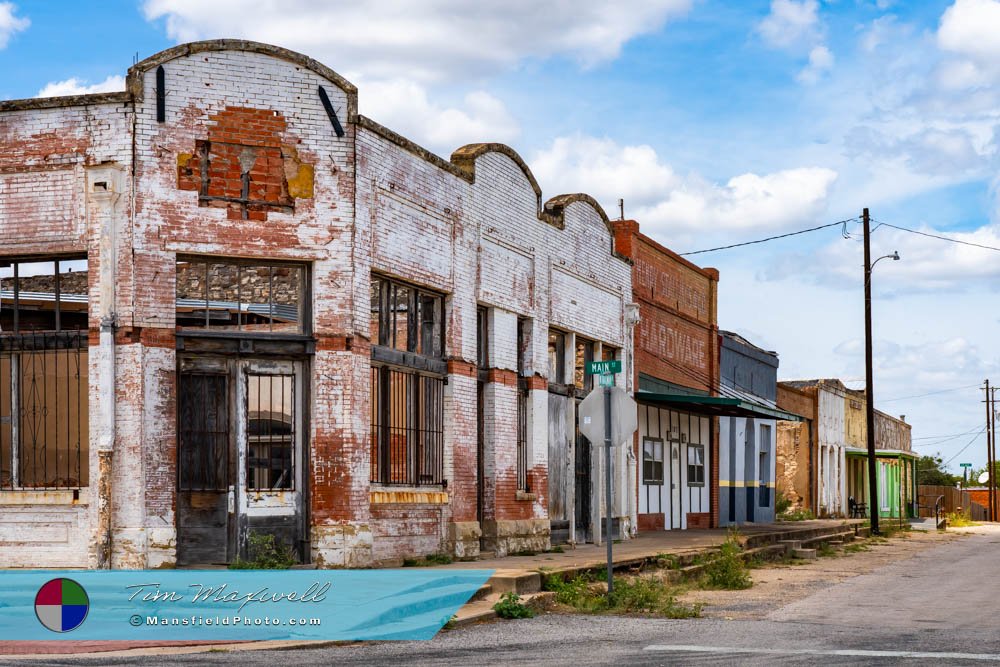Mansfield Photography
Lometa, Texas
– The Haunting Beauty.
In the rolling landscapes of Lampasas County, Lometa’s history mirrors the broader narrative of American expansion and resilience. Established on May 17, 1886, as a 200-acre railroad stop, this community emerged during a transformative era in Texas history. The town’s name, derived from the Spanish “Lomita,” meaning “little hill,” reflects the area’s gentle topography.
Origins and Early Development
The late 19th century was a period of rapid growth for Texas, with railroads serving as the arteries of commerce and communication. The Gulf, Colorado and Santa Fe Railway extended its reach northwest from Temple, selecting a site near a grassy knoll for a new station. This strategic decision led to the establishment of the town, which quickly became a hub of activity. By 1890, the population had grown to 150 residents, and within a few years, the town boasted multiple weekly newspapers, signaling its burgeoning significance in the region.
A Flourishing Community
The early 20th century marked a period of prosperity for the town. The arrival of the railroad brought economic opportunities, attracting businesses and settlers. The downtown area flourished with beautiful buildings, reflecting the architectural trends of the era. These structures not only served commercial purposes but also stood as symbols of the town’s aspirations and communal pride.
The Passage of Time
As decades passed, the town faced challenges common to many rural American communities. Economic shifts, changes in transportation, and urban migration led to a gradual decline in the vibrancy of the downtown area. While the town remains home to a dedicated population, the downtown has experienced a downturn, with several buildings sitting abandoned and neglected. This decline is particularly poignant given the evident beauty and historical significance of these structures, which, during the town’s heyday, must have been central to its identity.
A Call to Restoration
Despite the current state of the downtown area, there is a growing recognition of the potential for revitalization. The architectural beauty of the historic buildings offers a foundation upon which to rebuild. Restoring these structures could breathe new life into the community, transforming the downtown from its near-ghost-town status into a vibrant center of activity once more. It only takes a few dedicated individuals or groups to initiate this change, fostering a renewed sense of pride and economic opportunity.
Present-Day Community and Culture
Today, the town is home to approximately 800 residents, according to the 2020 census. The community maintains its rural charm, with local events such as the annual Diamondback Jubilee, livestock shows, and junior rodeos celebrating the area’s heritage and fostering community spirit. The town’s educational needs are served by a single school covering pre-kindergarten through 12th grade, reflecting the close-knit nature of the community.
Looking Forward
The story of this town is one of resilience and potential. While the downtown area currently faces challenges, the town’s history of adaptability and community spirit suggests a promising path forward. By embracing restoration efforts and capitalizing on the inherent beauty of its historic structures, the town can look forward to a future that honors its past while embracing new opportunities.
The town stands as a testament to the enduring spirit of Texas communities. Its history is rich with tales of growth, challenge, and resilience. With concerted efforts toward revitalization, the town has the potential to transform its present challenges into opportunities, ensuring that its legacy continues for generations to come.
📸 Interested in More Photos of This Town?






